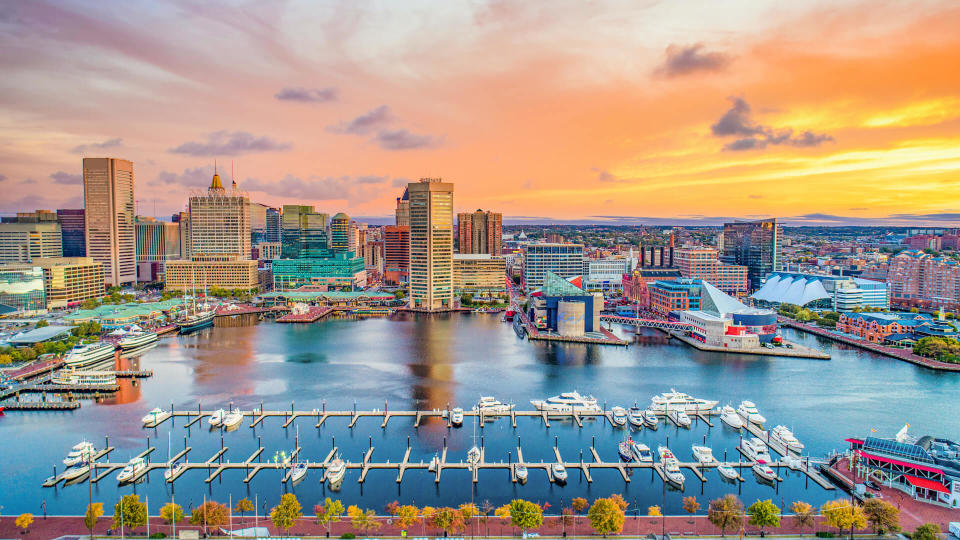In Less Than a Decade, These 6 Big Cities Will Be More Affordable Than They Are Now

It seems like every city is going through some sort of inflation. Talk to a local in any place, and you’ll hear them describe how real estate prices have gotten out of control and restaurants are charging too much. But, as Isaac Newton said: What goes up must come down.
Read Next: The 50 Happiest States in America and How Much It Costs to Live There
Try This: How To Get $340 Per Year in Cash Back on Gas and Other Things You Already Buy
For some cities, that comedown is going to be more noticeable than for others.
“Predicting which cities will definitively become more affordable is difficult, but some factors can increase the likelihood like shifting job markets, economic downturns and increased housing supply, especially if a city builds more housing stock in times of growth,” said Kurt Carlton, president and co-founder of New Western.
Taking a look at those factors, here are six major cities where Carlton and other experts predict it will be much more affordable come 2034.
Houston
The dominant industry in Houston is oil and gas, and Carlton said that if our country continues to pivot toward alternative energy sources, that could drastically change the city’s economy. “[Houston] could see an impact on housing demand if there is a major economic downturn or a shift away from fossil fuels.”
Right now, the average cost of a home in Houston is $269,461 according to Zillow, which is up 1.8% since last year. However, changes to the economy could bring this down, making homes incredibly affordable.
Check Out: 6 Reasons the Poor Stay Poor and Middle Class Doesn’t Become Wealthy
Detroit
The Motor City has been one of the country’s pillars of the auto industry. However, once again, alternative energy sources could change that, according to Eric Preston, CEO and founder of Agent Launch. “The electric car boom and the poor state of the auto industry will lower housing prices across the board,” he said.
The average cost of a home in Detroit is already way below the country’s average. Houses cost about $71,547 on average, and prices have only gone up 0.3% since last year. For a city that’s already pretty affordable, it seems like prices could drop even further.
Charlotte
Charlotte is a city that’s seen prices jump in recent years. The average cost of a home in Charlotte is currently $398,896, which is up 4.7% since last year. But, Carlton doesn’t think these prices can sustain. “An oversupply of housing units or an economic slowdown could lead to a correction in housing prices, making it potentially more affordable.”
Matthew Clark, an attorney at the Clark Law Office, also had an interesting perspective that upcoming legislation could have a big effect on Charlotte home prices.
“Just last year, hedge funds purchased 17% of homes in Charlotte. If the new bill banning hedge funds from owning single-family homes in the U.S. becomes law, home prices in Charlotte, North Carolina, may drop in the coming years. The proposed bill would force hedge funds to sell all their single-family homes over 10 years. This could increase the number of single-family homes for sale to individual buyers, potentially lowering property prices in East Charlotte.”
San Francisco
What was once one of the most expensive cities in the country could see a major drop in prices according to Preston. COVID had a huge impact on the city, which has caused many tech companies to move their offices elsewhere. “The departure of high-profile businesses and a shrinking population should drive housing prices down in the short and long term.”
The average price of a home in San Francisco is a staggering $1,290,678, but that is down 2.7% from last year. Seems like we can expect housing prices to come down even more over the coming years.
Baltimore
“Baltimore has been experiencing a shrinking population amid ongoing economic concerns,” Preston said. “This combination will drive housing prices down over the next decade as there’s no end in sight.”
Baltimore’s population is currently around 569,931. That’s down from 2020, when it was 583,132. The city’s population has been steadily declining since 2017. As for home prices, the average price of a home is $183,244. That’s actually up from last year by 4.7%. However, if more people continue to move out, there is bound to be a housing surplus, bringing prices down in the future.
Phoenix
Rebecca Hidalgo Rains is the CEO of Integrity All Stars Realty. She said that because of new housing developments, Phoenix could definitely see a decline in home prices.
“I see some of the run-down strip malls in the city being torn down to make room for new apartments and condos. If Arizona legislators can successfully loosen zoning laws to allow builders to build more freely within the city as opposed to building outside of it, then we will see home prices drop.”
The current average home price hovers around $427,882. That is up slightly from last year, but if enough homes are built, it could see a drop.
More From GOBankingRates
This article originally appeared on GOBankingRates.com: In Less Than a Decade, These 6 Big Cities Will Be More Affordable Than They Are Now

 Yahoo Finance
Yahoo Finance 